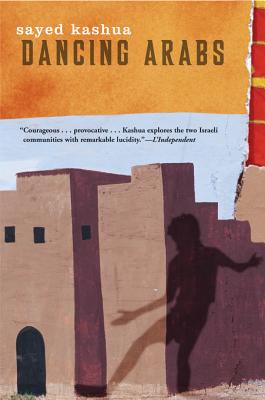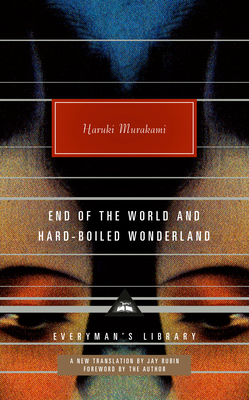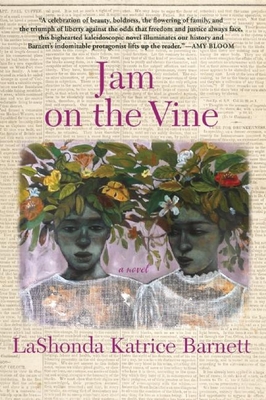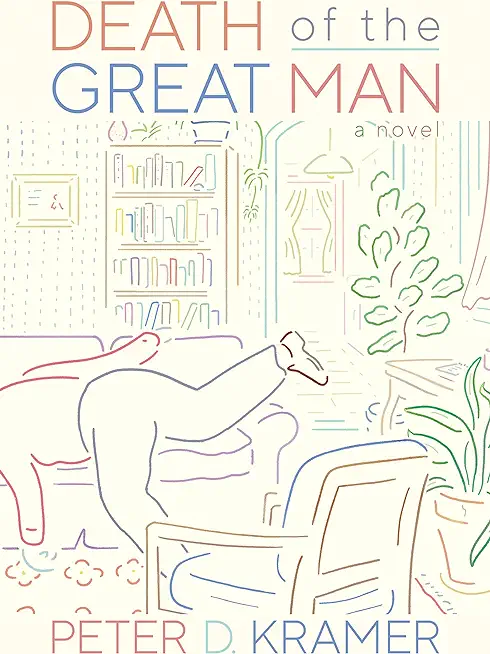
description
and irony, Dancing Arabs centers on a young boy from a poor Arab village, his haphazard receipt of a scholarship to a Jewish boarding school, and the dislocation and alienation that ensues when he finds himself faced with the impossible: the imperative to straddle two famously incompatible worlds. As a child, our nameless narrator/antihero lives with his family in his grandmother's house. His grandmother and father constantly impress upon him the significance of their land: when so many people fled or sold theirs away, they held strong. "Better to die fighting for your land than to give it away."
Every night after his brothers fall asleep, he climbs into bed with his grandmother, his main source of comfort and protection. One night she tells him where the key to her secret cupboard are, and if she should die, he must find all the death equipment in the blue bag. Paranoid from then on, he races home every day at recess to see if she's died. One day he gets there and she is not there, so he unlocks the cupboard and pulls out the box. All he finds are towels and some soaps from Mecca, but then he notices his father's photo in the old newspaper lining the suitcase, and some postcards in his father's handwriting. At his urging, his grandmother tells him about the newspaper clippings: his father was always "the handsomest and the smartest" in Tira, until he was thrown in jail for his political activity (eg: bombing a school cafeteria). The grandmother visited her son every week, wrote letters to the mayor, anyone who might be able to help her son. When he was released years later, he remained politically active, revering the Egyptian president Nasser, and for a time, joined the communist party. The young narrator is nothing like his father, who "doesn't understand how my brothers and I came out the way we did. We can't even draw a flag. He says kids smaller than us walk through the streets singing 'P-L-O----Israel NO!' and he shouts at us for not even knowing what PLO stands for." Not at all politically motivated, the boy knows nothing of national identity; he simply wants to get through the school day without getting smacked by his teacher. He excels at school and his family dreams that by the time he graduates, they will have their own state and he will become a pilot, or a judge. One day the principal tells him the Jews are opening a school for gifted students and they will be admitting a few Arab kids too. He is accepted and his father whoops with joy-this will mean a better life for his son and his whole family. His transition at school is very rough. The other students make fun of how he speaks and eats. On a bus home to Tira during his first school break, he is singled out and pulled off the bus by some soldiers. Humiliated, he proceeds on his journey home, but gets off of two more buses fearing that he will be questioned again. He winds up at Ben Gurion airport where his father has to come get him. He cries the whole way home and says he is never going back. His father mocks his tears and his weakness and tells him he has no choice-this is his only chance to escape the limitations of life in Tira. (The tug of war between father and son continues throughout the novel, the father putting his hopes and aspirations onto his son, as well as his defeats and disappointments.) He goes back to school, but only after deciding that he will never be identified as an Arab again. He becomes an expert at assuming false identities: he shaves off his moustache, learns how to pronounce Hebrew like the Jews, buys new clothes, starts listening to only Hebrew music. Soon he falls in love with Naomi, one of his Jewish classmates. On Memorial Day for the Fallen Soldiers, the narrator does not stand up during the moment of silence, and Naomi, whose father had died in action, refuses to speak to him. Eventually, Naomi admits that she loves him too, and for a while, they are together in spite of their differences. She initiates him into a new world of movie theatres and restaurants, and for the first time he learns that Zionism is an ideology, not a swear word; that his aunt is called a refugee; that Arabs in Israel are called a minority; he learns the meaning of both national homeland, and anti-semitism. As the end of his final term draws near, he is constantly tired and dizzy, cannot sleep or eat. He knows that he and Naomi will have to break up when school ends. He takes a bottle of pills the night before a big exam, and winds up in the hospital. His father comes and blames it on "that Jewish whore." After a short convalescence, he finds himself at Hebrew University. He trails Naomi at school, but she avoids him. He stops going to class-he uses his unlimited bus pass to travel the streets of Jerusalem for hours listening to his walkman. This is how he meets Samia, an Arab student who asks him the way to Hadassah hospital one day; he takes her there himself and they areeeeee a couple from then on. Four years later he decides it is time for them to marry. He and his wife are both Israeli citizens and know Hebrew well, but the narrator, a lost son, has no place to go back to after having been exposed to the tempting Israeli experience from which he is barred. He and his wife move to Beit Tsefafa, an Arab neighborhood where they don't know anyone. Soon the second intifada begins to rage-the narrator refers to it as "the war." He begins drinking heavily. He blames his father for his optimism, his faith that it will all turn out well for them, that his going to the boarding school would make a difference. His aimlessness and self-loathing deepen and spiral: he grows apart from his wife, he drinks, fantasizes about taking a lover, and is preoccupied with all his failures. Through his self-destructive haze, he decides he will make everything right-he and his wife will sleep together peacefully, like spoons, he'll give up drinking, he'll start praying
Every night after his brothers fall asleep, he climbs into bed with his grandmother, his main source of comfort and protection. One night she tells him where the key to her secret cupboard are, and if she should die, he must find all the death equipment in the blue bag. Paranoid from then on, he races home every day at recess to see if she's died. One day he gets there and she is not there, so he unlocks the cupboard and pulls out the box. All he finds are towels and some soaps from Mecca, but then he notices his father's photo in the old newspaper lining the suitcase, and some postcards in his father's handwriting. At his urging, his grandmother tells him about the newspaper clippings: his father was always "the handsomest and the smartest" in Tira, until he was thrown in jail for his political activity (eg: bombing a school cafeteria). The grandmother visited her son every week, wrote letters to the mayor, anyone who might be able to help her son. When he was released years later, he remained politically active, revering the Egyptian president Nasser, and for a time, joined the communist party. The young narrator is nothing like his father, who "doesn't understand how my brothers and I came out the way we did. We can't even draw a flag. He says kids smaller than us walk through the streets singing 'P-L-O----Israel NO!' and he shouts at us for not even knowing what PLO stands for." Not at all politically motivated, the boy knows nothing of national identity; he simply wants to get through the school day without getting smacked by his teacher. He excels at school and his family dreams that by the time he graduates, they will have their own state and he will become a pilot, or a judge. One day the principal tells him the Jews are opening a school for gifted students and they will be admitting a few Arab kids too. He is accepted and his father whoops with joy-this will mean a better life for his son and his whole family. His transition at school is very rough. The other students make fun of how he speaks and eats. On a bus home to Tira during his first school break, he is singled out and pulled off the bus by some soldiers. Humiliated, he proceeds on his journey home, but gets off of two more buses fearing that he will be questioned again. He winds up at Ben Gurion airport where his father has to come get him. He cries the whole way home and says he is never going back. His father mocks his tears and his weakness and tells him he has no choice-this is his only chance to escape the limitations of life in Tira. (The tug of war between father and son continues throughout the novel, the father putting his hopes and aspirations onto his son, as well as his defeats and disappointments.) He goes back to school, but only after deciding that he will never be identified as an Arab again. He becomes an expert at assuming false identities: he shaves off his moustache, learns how to pronounce Hebrew like the Jews, buys new clothes, starts listening to only Hebrew music. Soon he falls in love with Naomi, one of his Jewish classmates. On Memorial Day for the Fallen Soldiers, the narrator does not stand up during the moment of silence, and Naomi, whose father had died in action, refuses to speak to him. Eventually, Naomi admits that she loves him too, and for a while, they are together in spite of their differences. She initiates him into a new world of movie theatres and restaurants, and for the first time he learns that Zionism is an ideology, not a swear word; that his aunt is called a refugee; that Arabs in Israel are called a minority; he learns the meaning of both national homeland, and anti-semitism. As the end of his final term draws near, he is constantly tired and dizzy, cannot sleep or eat. He knows that he and Naomi will have to break up when school ends. He takes a bottle of pills the night before a big exam, and winds up in the hospital. His father comes and blames it on "that Jewish whore." After a short convalescence, he finds himself at Hebrew University. He trails Naomi at school, but she avoids him. He stops going to class-he uses his unlimited bus pass to travel the streets of Jerusalem for hours listening to his walkman. This is how he meets Samia, an Arab student who asks him the way to Hadassah hospital one day; he takes her there himself and they areeeeee a couple from then on. Four years later he decides it is time for them to marry. He and his wife are both Israeli citizens and know Hebrew well, but the narrator, a lost son, has no place to go back to after having been exposed to the tempting Israeli experience from which he is barred. He and his wife move to Beit Tsefafa, an Arab neighborhood where they don't know anyone. Soon the second intifada begins to rage-the narrator refers to it as "the war." He begins drinking heavily. He blames his father for his optimism, his faith that it will all turn out well for them, that his going to the boarding school would make a difference. His aimlessness and self-loathing deepen and spiral: he grows apart from his wife, he drinks, fantasizes about taking a lover, and is preoccupied with all his failures. Through his self-destructive haze, he decides he will make everything right-he and his wife will sleep together peacefully, like spoons, he'll give up drinking, he'll start praying
member goods
No member items were found under this heading.
Return Policy
All sales are final
Shipping
No special shipping considerations available.
Shipping fees determined at checkout.







